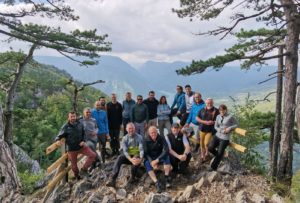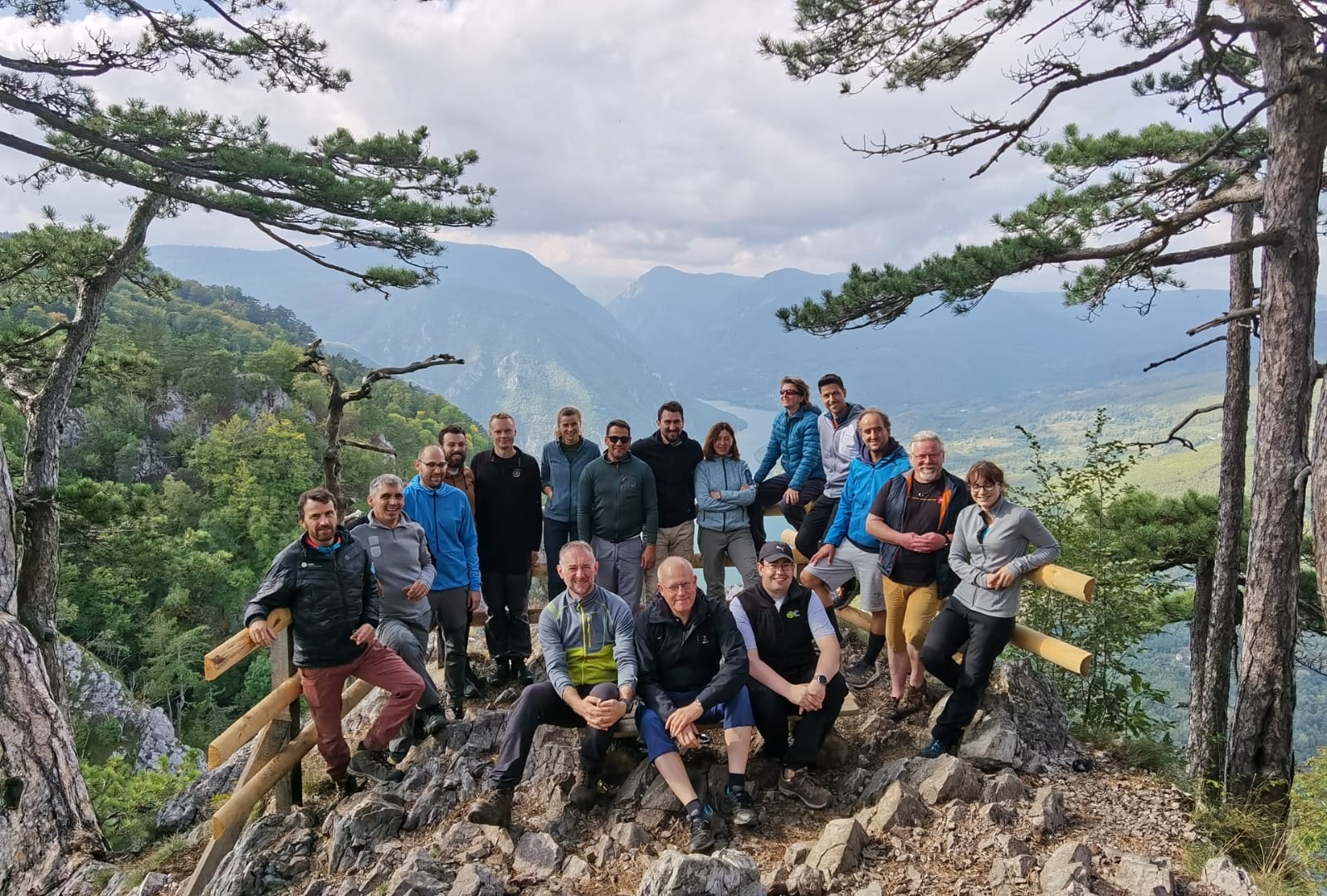SEE Project – promoting environmental responsibility in outdoor sports activity

One strong message that came from the recent COP 26 Climate Change Summit, is that every part of the economy and society must now play its part in combating the climate crisis. We can all make a difference in examining how we live our lives, the activities we are engaged in day-to-day, and how we can change these to reduce our impact on our environment, and even the planet.
It is that fundamental principle that lies behind the Sustainability and Outdoor Education (SEE) Project. The SEE Project aims to enhance the protection of natural landscapes through education on responsible outdoor behaviour in sports, with a special focus on skills development for outdoor sports leaders, trainers, guides, and instructors.
The SEE Project will also help to promote voluntary activities in sport, together with social inclusion, equal opportunities, and awareness of the importance of health-enhancing physical activity – all in a frame of sustainable development, and in line with the new Green Deal for Europe.
To deliver the project, Leave No Trace Ireland is working in collaboration with partner outdoor sports professionals and conservation organisations in Germany, Spain, Portugal, Netherlands, Sweden, and France.
So why the SEE Project?
We all know the positive outcomes that flow from outdoor sports; both in terms of physical activity, and being in and enjoying nature.
Sports are also hugely important from an economic and community point of view. Sports are known to contribute to the wider economy, and social and community cohesion, development, and general wellbeing.
The global phenomenon of the park run movement is a graphic illustration of the myriad of benefits that follow from organised, community-led, and fun outdoor activity.
But outdoor sports and leisure activities, particularly where these are high-impact sports, can take a toll on the natural environment – whether on the land, sea, or our waterways. This can take many different forms, including; impacting biodiversity and wildlife; creating overused activity hubs; or generating waste, particularly plastic as a by-product of sporting activity.
As participation in sporting and leisure activities increases, failure to acknowledge and respond to their impacts on the natural environment could ultimately see the necessity to limit and restrict access to certain activities and locations.
It is to address these potential impacts, and to develop sustainable solutions and best practices, that the SEE Project was developed.
Key to the project (and building on the new European Green Deal theme of environmental responsibility) is a focus on developing mechanisms to train instructors, guides, and leaders on how to communicate good environmental practices and ethics.
The SEE Project gathers and builds on the shared learning from across Europe of successful programs that have delivered environmental and sustainability education in outdoor sports and activities.
This learning forms the basis of a tool kit, incorporating existing best practices in leadership training with a core focus on the goals of sustainability, care and responsibility to protect biodiversity and the natural environment.
As our understanding and awareness of the many and diverse benefits of outdoor sports and activities grow, the future for wider participation in active lifestyles looks bright. However, it seems certain that this increased activity will be accompanied by greater access to, and impact on, our natural, protected, and sensitive areas.
The SEE Project offers an exciting opportunity to proactively work to mitigate and minimise these potential impacts, and to make an important contribution in delivering on the European Green Deal commitment to environmental sustainability and responsibility in every aspect of our lives.
For more information about the SEE Project, see our previous posts – such as:
- A list of our European partners for the project
- Updates on the continued exchanges to Serbia, and to Portugal

